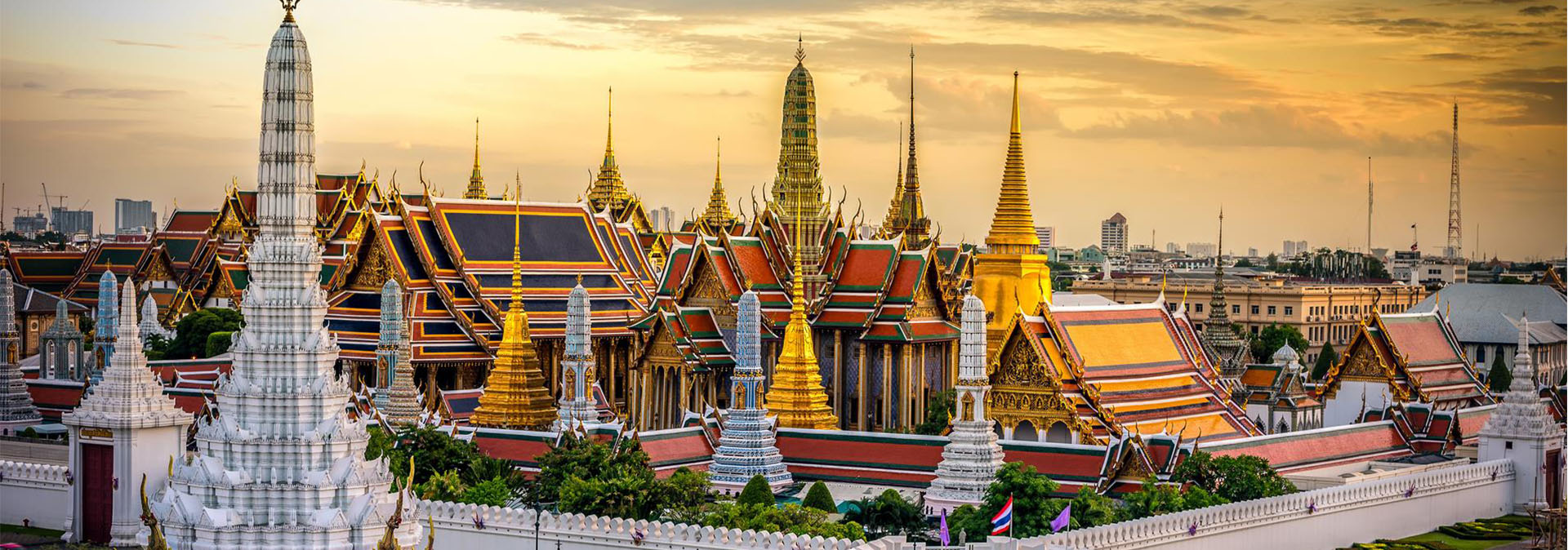Frequently Asked Questions
Do I need a Visa to enter Thailand?
Do I need a visa to visit Thailand’ is one of the most commonly asked questions. And it’s easy to understand why. Thailand’s visa rules can seem a little confusing and are constantly changing, but hopefully this will shed some light on the situation.
There are two fundamental visa options for a visitor to Thailand from most countries -:
1. Arrive by air without a visa and get a free 30 day “Visa Waiver” entry stamp on arrival, which can later be extended by up to 10 days at an immigration post in Thailand. (Arrival by land without a visa only provides 15 days entry.) Visa Waivers are only available to citizens of select nations.)
2. Apply to a Thai consulate or embassy for a visa before you travel. Details on types of visas and how to apply for them are given below.
Important change: Visa Runs
It used to be that you could arrive in Thailand with no proof of onward travel, be granted a free 30-day entry stamp, and extend your stay indefinitely by popping over the border and back every month to renew your entry stamp. This is no longer the case. Not only are you now limited to three visa waivers per any six month period, you must then obtain a legitimate visa or be physically absent from the country for an additional six months. You are still able to do up to two visa runs, extending your stay up to a maximum of 90 days, but the next time you leave the country you will not be permitted to return for a further 90 days.
Important warning
Do not overstay your visa in Thailand, even by a few hours. If you want to stay longer, get the visa extended or do a visa run before your visa expires.
Some travelers may tell you that overstaying your visa by a few days isn’t a problem and that you’ll just have to pay a fine of 500 baht a day. While it is true that you will just be fined if you turn up at the airport or border with an expired visa, if you are discovered with an out-of-date visa in any other circumstances you will be arrested and detained at the Immigration Detention Centre – an exceptionally grim place which Amnesty International has been campaigning to have closed for a long time.
For more information, please visit Ministry of Foreign Affairs, Kingdom of Thailand
How to apply for Visa?
Any foreigner seeking entry into the Kingdom of Thailand should apply for a visa from a Thai Embassy or Consulate-General. To do so, a foreigner must possess a valid passport or travel document that is recognized by the Royal Thai Government and comply with the conditions set forth in the Immigration Act B.E.2522 (1979) and its related provisions. Moreover, foreigners can obtain visa on arrival from the airport of kingdom of Thailand which allows the stay of not exceeding 15 days. For more information, please visit www.mfa.go.th
How do I get to Thailand?
When most tourists travel to Thailand they typically choose to fly into a Thailand airport, though it’s also possible to travel overland through Malaysia, Laos or Cambodia as they share borders with Thailand.
Flights to Thailand are serviced by approximately 70 listed airlines who have licenses from the Thai government and abide by international standards, including Aeroflot, Air France, Cathay Pacific, Emirates, Lufthansa, United Airlines, Swiss Air, and many others. The Thai national airlines itself is Thai Airways, one of the most esteemed airlines in the world.
Air carries that travel to Thailand depart from all around the world, such as USA, Canada, UK, Germany, Sweden, France, Italy, UAE, Singapore, Malaysia, Hong Kong, Japan, China, Australia, New Zealand. The flights entering Thailand may be direct flights or transit flight.
The landing ports in Thailand are situated at different destinations. Suvarnabhumi Airport in Bangkok serves as the landing port for numerous international flights. Some chartered and regional flights may land at one of the other international airports within Thailand, including Chiang Mai International Airport, Phuket International Airport and Hat Yai International Airport
What general health advice is there for Thailand?
No inoculations or vaccinations are required unless you are coming from or passing through contaminated areas. Yellow fever certificates are required for those who are coming from the 14 following countries; Bolivia, Brazil, Colombia, Peru, Angola, Burkina Faso, Gambia, Ghana, Guinea, Mauritania, Mali, Nigeria, Sudan and Zaire.
Many travelers suffer heat exhaustion and dehydration when travelling in Thailand during the warmer months, so stay sun smart and keep up the fluids through out the day. Although, Thailand is indeed a modern country, it is still advisable to be aware of following diseases that are dangers in Thailand:
– Malaria
– Japanese B encephalitis
– Rabies
– Dengue fever
– AIDS
Do I need malarial medication in Thailand?
Malaria in Thailand is not as common as in neighboring countries, though Malaria (and some of the most virulent strains) is prevalent along the border regions, particularly near Cambodia and Laos. Medications for malaria do not prevent you from getting infected with malaria; they simply better prepare your immune system in the event of infection. Consequently, those not traveling to high risk zones do not need to take medication unless they exhibit symptoms of Malaria, including high fever. Medical help should be taken immediately if malaria is suspected. Without treatment malaria can rapidly become more serious and can be fatal. The best line of defense is insect repellent with DEET, which is available throughout Thailand, and a mosquito net if traveling off the beaten path, particularly during the rainy season.
What is the food like?
Thai food is internationally famous. Whether chili-hot or comparatively bland, harmony is the guiding principle behind each dish. Thai cuisine is essentially a marriage of centuries-old Eastern and Western influences harmoniously combined into something uniquely Thai. The characteristics of Thai food depend on who cooks it and who it’s cooked for. Thai cooking also reflects the characteristics of a waterborne lifestyle. Aquatic animals, plants and herbs are major ingredients. Large cuts of meat have been eschewed. With their Buddhist background, Thais shunned the use of large animals in big chunks. Big cuts of meat were shredded and laced with herbs and spices.
Traditional Thai cooking methods were stewing and baking or grilling. Chinese influences were responsible for the introduction of frying, stir frying and deep-frying. Culinary influences from the 17th century onwards included Portuguese, Dutch, French and Japanese. For example, chilies were introduced to Thai cooking during the late 1600s by Portuguese missionaries who had acquired a taste for them while serving in South America.
Thais were very clever at ‘Siamese-ising’ foreign cooking methods, and substituting ingredients. The ghee used in Indian cooking was replaced by coconut oil, and coconut milk substituted for other daily products.
Overpowering pure spices were toned down and enhanced by fresh herbs such as lemon grass and galangal. Eventually, fewer and less spices were used in Thai curries, while the use of fresh herbs increased. It is generally acknowledged that Thai curries burn intensely, but briefly, whereas other curries with strong spices burn for longer periods. Furthermore, instead of serving dishes in courses, a Thai meal is served all at once, permitting dinners to enjoy complementary combinations of different tastes.
A proper Thai meal should consist of a soup, a curry dish with condiments, and a dip with accompanying fish and vegetables. A spicy salad may replace the curry dish. The soup can also be spicy, but the curry should be replaced by non spiced items. There must be a harmony of tastes and textures within individual dishes and the entire meal.
Is Thailand a safe place to travel alone to?
As with just about anywhere in the world, you are safer traveling with others, but as long as you use your common sense, traveling alone is generally perfectly safe — tens of thousands of people do it every year. Take all the usual precautions, have copies of all your documentation and try to keep in touch with family or friends overseas. There’s no shortage of internet cafes across the country, so there’s not really any excuse for not occasionally dropping an email in to placate the worriers at home. Better still; send a postcard as some people still use those. If you ever find yourself in an uncomfortable situation, don’t hesitate to ask a local for assistance — by and large Thais are very helpful people.
Thailand is a relatively safe country but nonetheless everyone is advised to keep constant vigilance and street smartness as danger may happen and could happen anywhere. Here are some tips you can practice for a safe vacation: -Do not leave your valuables unattended anywhere. -Dark alleyways are not for wandering alone. -Always be on-guard with your safety and valuables.
– Thais are indeed very friendly but be wary of seemingly friendly strangers offering cigarettes, food and drink as these may be spiked or mixed heavily with sedatives or other dangerous/ illegal drugs.
– Beware of unauthorized people offering services as guide.
– Do not get yourself involved with drugs. Penalties for drug offenses are severe in Thailand.
Credit cards and ATM cards in Thailand?
It may be best to avoid bringing too much money into Thailand, or even carrying it on you while traveling around Thailand. You can get Thai baht from the ATM machines using your major credit card or your foreign bank account debit card; ATM machines are located just about everywhere, from Shopping malls, to small towns and villages.
The exchange rate is calculated automatic and roughly as good as you’ll find anywhere (generally it’s set at what that particular bank would offer you at one of its currency exchange counters).
There are also Currency Exchange outlets, particularly in tourist areas. These are especially useful if you forget your PIN number or if you can’t find a working ATM near you which will accept your particular card for some reason.
Not all ATM machines take all kinds of cards. Many will not take Visa or MasterCard, or will take one but not the other. You have to look for the credit card logos on the ATM signs. There are also the credit card groups such as Plus and Cirrus. If you look around, you will usually find a machine with your insignia on it.
ATM machines offer both Thai and English language.
It should also be noted that some ATM machines are rigged by criminals to digitally copy the information on the magnetic stripe while a hidden camera records your pin number. Protect yourself by using ATMs in busier areas (they are more difficult to rig) and by using one hand to cover the other while typing your pin number in.
MasterCard and Visa are most commonly accepted, but other kinds of major credit cards are commonly accepted as well. Some carry a sizeable surcharge per withdrawal, e.g., $1, so check with your credit card company beforehand if this is bothersome to you.
You should always keep a small amount of cash on you at all times, one reason for this is that the ATM machines often crash late at night, and aren’t reset until the morning. Another reason is in case your credit cards are stolen or lost. While Thailand is a relatively safe country, theft can happen anywhere in the world.
In fact, you may be better off paying cash than using a credit card. While it’s technically against the law for the Thai vendor to pass onto you the fee that the credit card company charges them (approximately 2.25% to 3.5%, depending upon card type), it’s quite common for them to do so, and it’s usually not negotiable — you either pay the surcharge or don’t use your credit card. They often want to charge 4 or 5% instead of the 2.25% to 3.5%.
You should also be aware that many vendors use a third party to bill your credit card. Thus, your credit card number may not be safe.
Any time your credit card number goes down on paper, you could possibly be at risk.
If you lose your credit card or have other problems, you can reach the credit card companies in Bangkok on the following numbers.
MasterCard (02) 260-8572
Visa (02) 273-1199 or (02) 273-7449
American Express (02) 273-0022 or (02) 273-0044
Diner’s Club (02) 238-3660
Should I carry cash or traveler cheques or debit/credit cards?
Thai Baht is accepted everywhere and currency exchange booths are available around Bangkok in banks across Thailand. While major credit and debit cards are also accepted in most establishments and shopping centers, there are occasionally additional fees from both the retailer and your card provider. Travelers cheques can be cashed at most banks throughout Thailand though less so at retail establishments.
How should foreigners greet Thai people?
Hello (Male speaker): Sawasdee Krup, Hello (Female speaker): Sawasdee Kaa. As Thais do not generally shake hands, foreigners can follow a simplified, albeit not technically exact, rule of returning the wai of anyone who wais them by pressing their hands together beneath their chin and slightly nodding their heads. In general the person of lower status should wai first, but foreigners are generally forgiven for not understanding the nuances of Thai greetings.
How much should i tip in Thailand?
Tipping is not a usual practice in Thailand although it is becoming more common. Most hotels and restaurants add a 10% service charge to the bill. Taxi drivers do not require a tip, but the gesture is appreciated and 20-50 baht is acceptable for porters. In restaurants it is common for Thai’s to leave the coins as a tip, though an additional 20-100 baht is not unheard of in nicer establishments, particularly if the service is good.
When is the best time to go trekking/hiking in Thailand?
During the rainy season (July to October) is the best time to enjoy waterfalls and trekking and hiking in the forests showcases the peak of the lush tropical greenery. That said, the cool season (November to February) provides refreshing breezes and the trees are generally green fr
Are tourists attractions open on public holidays?
Most of the tourist attractions are open on public holidays unless some situations may not permit them to be open, such as a ceremony occurring there. Some places’ opening times and days are fixed regardless of holidays. Therefore, before visiting anywhere its best to make sure that the place is open by asking the front desk of your hotel or a tourism office.
Some tips for shopping in Thailand?
Department stores and a number of shops in Bangkok have fixed prices, but at most of others bargaining is acceptable and expected; however, some department stores will even offer a discount on expensive items like jewelry and fine furniture. No fixed rules can be given on the process of haggling; it depends as much on the bargainer’s skill as the shopkeeper’s mood, but the final price may be reduced as much as 10% to 40% of the first quoted price. An important point to keep in mind is that Thais admire good manners and a sense of humor and tend to be put off by a loss of temper. Providing you have the time, a good general rule is to make a survey of several shops selling the sort of items you want before coming to a final decision. Furthermore, sellers superstitiously believe that making their first sale early will portend a prosperous day. Consequently, you may get a lower price if you shop early (just after the night market has set up for example). The cash from your “lucky sale” will be tapped on the other merchandise to help those goods sell more quickly!
Should I bargain for everything?
Usually, fixed prices are the norm in department stores, while bargaining is expected at most other places. Generally, you can obtain a final figure of between 10-40% lower than the original asking price. Much depends on your skills and the shopkeeper’s mood. But remember, Thais appreciate good manners and a sense of humor. With patience and a broad smile, you will not only get a better price, you will also enjoy shopping as an art.
What's the best buy in Thailand?
Jewelry and gemstones from Thailand are the favorite items for many visitors to the kingdom. Their beauty, quality craftsmanship and reasonable prices have earned Thai precious and semi-precious stones a worldwide reputation. Thai silk, Thai antiques, Thai crafts and souvenirs are also the best buys.


